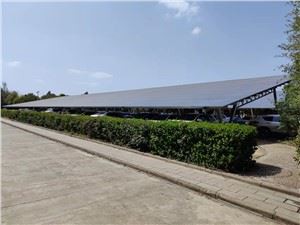Understanding the Average RV Loan Term: A Comprehensive Guide
Introduction
If you’re considering purchasing a recreational vehicle (RV), understanding the financing options available to you is crucial. One of the most important aspects of RV financing is the loan term, which significantly affects your monthly payments and the total interest paid over the life of the loan. In this article, we’ll delve deep into the average RV loan term, exploring different options, factors influencing your decision, and practical tips to secure the best financing for your RV. By the end, you will have a comprehensive understanding of RV loans, allowing you to make informed decisions for your RV purchase.
What is an RV Loan?
An RV loan is a type of personal loan specifically designed to finance the purchase of a recreational vehicle. These loans can be secured using the RV as collateral, making them typically easier to obtain and often come with lower interest rates compared to unsecured personal loans.
Types of RV Loans
- Secured RV Loans: These loans are backed by the RV itself, which means the lender can repossess the vehicle if payments are not made.
- Unsecured RV Loans: These loans do not require collateral but often come with higher interest rates due to the increased risk for lenders.
Why Financing an RV is Different
Unlike car loans or home mortgages, RV loans often have unique terms and conditions due to the lifestyle and depreciation factors involved in RV ownership. Lenders take into account the potential resale value and average usage of the vehicle.
Average RV Loan Term Explained
The average RV loan term varies, but it typically ranges from 10 to 15 years. Longer terms can lower monthly payments, but can also lead to paying more in interest over time. In contrast, shorter terms often come with higher monthly payments but less total interest.
Understanding Average Loan Terms
Let’s break down the average RV loan terms:
| Loan Term | Pros | Cons |
|---|---|---|
| 5 Years | Lower interest overall, quicker equity building | Higher monthly payments |
| 10 Years | Balanced monthly payments, manageable interest | Moderate total interest expense |
| 15 Years | Lower monthly payments, easier budget | Higher total interest, slower equity growth |
Factors Affecting RV Loan Terms
1. Your Credit Score
Your credit score is one of the most significant factors influencing your RV loan term and interest rate. A higher credit score typically qualifies you for better loan terms, including lower rates and longer terms.
2. The Price of the RV
The total cost of the RV can also affect the loan term. More expensive RVs may necessitate longer loan terms to keep monthly payments manageable.
3. Down Payment
A larger down payment can result in better financing terms. This reduces the amount financed, potentially allowing for a shorter payback period.
4. Lender Policies
Each lender has different policies regarding RV loans, including their maximum loan term lengths and interest rates. Shopping around can yield more favorable terms.
5. Type of RV

The type of RV can influence loan parameters. Newer RVs typically come with better financing options compared to older models.
Examples of RV Loan Scenarios
Scenario 1: New RV Purchase

If you are financing a new RV priced at $50,000 with a 20% down payment, here’s how your financing might work:
- Loan Amount: $40,000
- Loan Term: 10 Years
- Interest Rate: 5%
- Monthly Payment: Approximately $424
Scenario 2: Used RV Purchase
When purchasing a used RV priced at $30,000 with a 10% down payment, the numbers may look like this:
- Loan Amount: $27,000
- Loan Term: 15 Years
- Interest Rate: 6%
- Monthly Payment: Approximately $230
Tips for Securing the Best RV Loan
1. Shop Around
Different lenders can offer varying rates and terms, so getting multiple quotes is essential.
2. Improve Your Credit Score
Taking steps to improve your credit score before applying can help you secure better terms.
3. Consider Shorter Terms
While monthly payments may be higher, shorter terms typically save you money on interest over time.
4. Aim for a Substantial Down Payment
A larger down payment reduces your financed amount, resulting in lower payments and better interest rates.
5. Understand the Fine Print
Always read the loan agreement carefully, understanding all fees, charges, and terms before signing.
Loan Repayment: What to Expect
Making Payments
Payments can typically be made monthly, and many lenders offer online options for convenience. Ensure you set up a reliable schedule to avoid late fees.
Paying Off Your Loan Early
Find out if your loan includes prepayment penalties. If not, paying off your loan early can save significantly on interest.
Common Questions About RV Loan Terms
1. What is the longest RV loan term I can get?
Typically, the maximum loan term is 20 years, depending on the lender and the cost of the RV.
2. Can I refinance my RV loan?
Yes, refinancing can be an option if you find a better rate or want to change your loan term.

3. What happens if I miss a payment?
Missing payments can lead to late fees, increased interest rates, and in severe cases, repossession of the RV.
4. Are RV loans tax-deductible?
In some cases, yes. If the RV is used as a qualified secondary residence, you may be able to deduct interest on your taxes.
5. What should I look for in an RV loan?
Look for competitive interest rates, favorable terms, and flexible payment options.
6. Is it better to finance through a dealership or a bank?
It depends. Dealerships might offer incentives, while banks may provide better rates. Compare both options before deciding.
